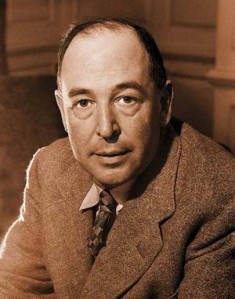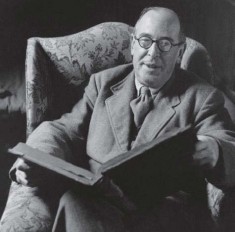| C. S. Lewis | |
|---|---|
 |
|
| Scholar | |
| Born | Nov. 29, 1898 Belfast, Ireland |
| Died | Nov. 22, 1963 (at age 64) Oxford, England |
| Nationality | British |
C.S. Lewis was an essayist, a Christian apologist, and an author. He is also popular across the world as an author of The Chronicles of Narnia series, which has been utilized in a number of movies for big as well as small screens.
Early Life
Lewis was born in Belfast, Ireland, in 1898 to Albert Lewis and Flora Hamilton Lewis. His older brother, Warren Lewis, was born three years earlier in 1895. Lewis’ family and friends called him Lewis Jack. Lewis was so close to his brother Warren and they spent much time together as kids. He was enraptured by wonderful animals as well as tales of gallantry, and thus the brothers created a fantasy land of Boxen with a history that served them for many years.
His early childhood was happy and carefree. During those days, Northern Ireland was not plagued by civil war, and Lewis and his family lived happily. The family home, known as Little Lea, was a big, gabled house with an overgrown garden, which Lewis and Warren played in. Also, there was a library that was full of books—two of Lewis’ favorite books were The Secret Garden and Treasure Island.
Educational Years
Lewis’ idyllic boyhood came to an end when his mother lost her battle with cancer in 1908. Less than a month after his mother’s death, Lewis and his brother were sent to school in England. Lewis disliked the school, with its stern rules and harsh, unsympathetic head teacher, and he terribly missed Belfast.
However, the school closed down in 1910, and Lewis returned to Ireland. After one year, though, Lewis was sent back to England to continue with his studies. But this time the experience was mostly positive. As a teen, he loved poetry, particularly the works of Homer and Virgil.
College Years
In the year 1916, Lewis enrolled at Oxford University. There, he was a great scholar acquiring a triple first, which was one of the highest honors achievable. Nonetheless, in 1917, his college life was a bit interrupted when he decided to volunteer for active duty in WW1, to serve in the British military.
After WWI in 1918, Lewis went back to Oxford where he took up his studies once again with great enthusiasm. In 1925, he graduated with first-class honors in Latin and Greek literature, philosophy and ancient history.
Career Highlights
After his graduation from Oxford, Lewis was appointed to a vital teaching post in the English department there. He remained at Oxford for almost three decades. In 1925, he was awarded a fellowship teaching position at the Magdalen College. There, he joined a group called The Inklings, a collective of intellectuals and writers. Some of the group’s members were Tolkien and Lewis’ brother, Warren. It was through discussions with the members of the group that Lewis found himself embracing Christianity again after he became disenchanted with this religion as a youth.
Lewis and the Christian faith
 While Lewis grew up in a Christian family, he lost his faith as a teen. He was turned off by dreary church services as well as the problem of sin in the world. But after going back to Oxford after WWI, he became confused by the existence of Christianity and God.
While Lewis grew up in a Christian family, he lost his faith as a teen. He was turned off by dreary church services as well as the problem of sin in the world. But after going back to Oxford after WWI, he became confused by the existence of Christianity and God.
After a number of evening discussions with friends like Tolkien, Hugo Dyson, and other members of The Inklings, Lewis ultimately converted to Christianity in 1929. Later he wrote that he was reluctant and unwilling to convert to Christianity. He became a renowned apologist for the Christian faith through publications like The Screwtape Letters and others.
Greatest Achievements
C.S. Lewis’ most popular achievement is his seven-part fantasy series known as The Chronicles of Narnia. The book has been published in 47 languages. The story starts with the book entitled The Lion, the Witch, and the Wardrobe, in which four kids flee life in England through the back of the wardrobe into the world of Narnia.
The series is quite heavy with references to ancient Roman and Greek mythology. Lewis might be well-known for this fantasy series, but he also gained a lot of fame through writing other fictional stories. The Space Trilogy steps away from his usual themes of magic and myths, and instead focuses more on what life might be like in other planets.
Death and Legacy
Lewis began having health issues in 1961. He contracted blood poisoning from his kidneys being inflamed. His health began to improve and friends said he was back to himself in the early part of 1963. But in July of the same year, he had a heart attack and went into a coma. He returned home, but later died on November 22, 1963. He is buried at Holy Trinity Church in Headington, Oxford.